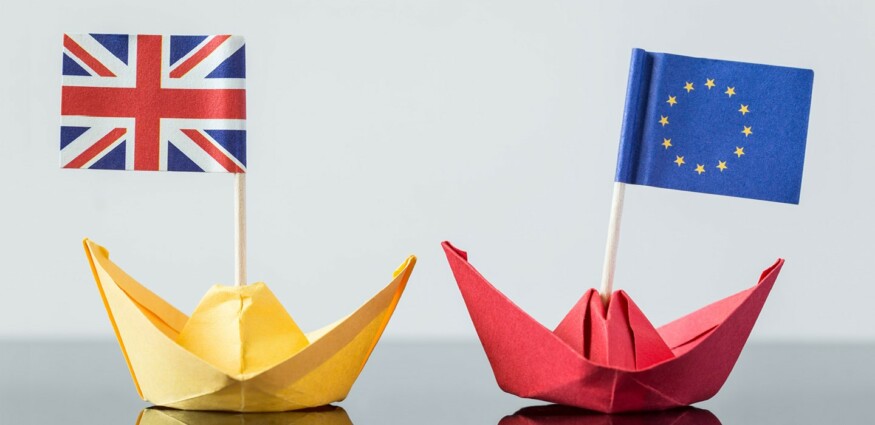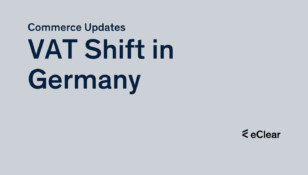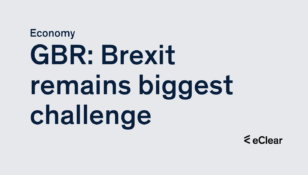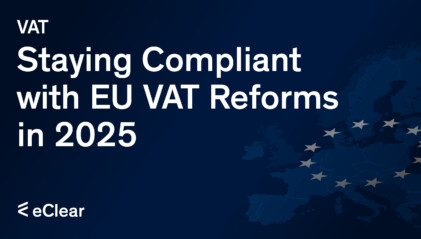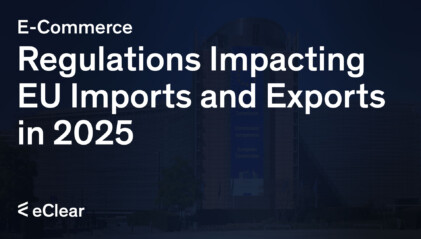The political negotiations and developments dragged on for years. But since 1 January 2021, the United Kingdom is no longer part of the EU Single Market and Customs Union. How did this come about and what consequences did Brexit have for trade in goods?
The story of how Brexit happened
In 2016, a referendum was held on whether the United Kingdom should remain in the European Union (EU). A narrow majority of respondents voted to leave the EU. The withdrawal is also known as Brexit.
The withdrawal process dragged on for several years. Negotiations between the EU and the UK were protracted, and the exit date was postponed many times. Formally, the UK left the EU on 31 January 2020.
Transition phase until the end of 2020
However, it was problematic that the negotiations between the EU and the United Kingdom had not yet been concluded. Without corresponding agreements, there was a threat of a so-called hard Brexit, which would have brought considerable uncertainty and consequences for many companies and in particular for the movement of goods. Therefore, due to a transitional phase, EU law was still applied until the end of 2020.
From 1 January 2021, however, the United Kingdom is no longer part of the European Single Market and the Customs Union. German companies trading with the UK must comply with the regulations for trade with non-EU third countries.
„Brexit has a significant impact on the supply chains between EU-based merchants and the UK. Registration obligations and customs consequences must now be closely examined. In addition, registration and storage obligations must be fulfilled.“
What do merchants have to observe when making deliveries to the United Kingdom?
Merchants based in Germany must observe customs formalities when making deliveries to the United Kingdom. They must apply for a so-called EORI number (Economic Operators´ Registration and Identification number). A customs declaration is required for each export. Exports are declared electronically. Merchants must participate in the ATLAS export procedure accordingly. If you want to benefit from an automated solution, you need the EORI-No.
Attention: Since 1 January 2022, the so-called Border Operating Model applies in the UK. Complete customs declarations are mandatory. The movement of goods will be controlled. Merchants should therefore pay particular attention to customs obligations.
Extensive information on the consequences of Brexit is available from German Customs on its website.
Important: Special rules apply to Northern Ireland. Although Northern Ireland is part of the UK customs territory, it is treated as if it were part of the EU customs territory for customs purposes.
For VAT purposes, supplies to Great Britain are no longer treated as intra-Community supplies. A delivery by a merchant based in Germany to the UK is a so-called tax-exempt export delivery (§ 6 UStG). However, the supply is subject to import VAT in the UK.
When trading with the UK, there is a delivery threshold of 135 pounds (GBP) that merchants must observe. Deliveries up to this value are generally exempt from customs duty and import VAT. For small consignments to private individuals, however, German merchants must register in the UK and pay UK VAT, unless the trade takes place via a marketplace such as Amazon. In this case, the marketplace operator must pay the VAT (see below).
Customs and VAT obligations must be observed even for low-value deliveries. The costs and processing are costly and complex for merchants. This can make trade more difficult.
Example: The merchant Modehaus Kernel, based in Cologne (Germany), sells and dispatches a pair of women’s trousers worth 100 euros to a private customer in England. Before Brexit, this was an intra-Community supply to which the mail order regulation applied (delivery threshold of GBP 70,000). But after Brexit, the German merchant Kernel must also act for a delivery with a value of only 100 euros and fulfil both customs and VAT obligations.
For small consignments to companies, the reverse-charge procedure applies if the British buyer provides a valid VAT identification number.
„When trading goods between Germany and the UK, companies must classify every delivery for customs and tax purposes. Even deliveries with a low shipment value are not exempt. End-to-end solutions can significantly relieve merchants in the processing.“
What do merchants have to consider when delivering from the UK?
If goods are delivered from the UK to Germany, import VAT is generally due. Shipments up to 150 euros are duty-free. For the further VAT treatment in the B2B sector, it depends on which exact delivery conditions have been agreed.
If the UK-based company declares the import, the delivery to a German entrepreneur is taxable and taxable in Germany according to § 3 para. 8 UStG. The British company must generally register in Germany and comply with declaration obligations.
If goods are delivered to German private individuals, the Import-One-Stop-Shop can be used for deliveries of goods with a value of up to 150 euros (see below).
Attention: For deliveries from Northern Ireland, special features must be observed. As already mentioned, a special status has been negotiated for Northern Ireland. Northern Ireland is treated as if it were still a member of the EU.
What do customers have to consider when ordering from online marketplaces?
Many German customers also order goods from UK web shops. Merchants must note that when selling via online marketplaces, including those based outside the UK, the marketplace operator in the UK must carry out customs and VAT obligations themselves when selling to UK businesses. The marketplace operator must take care of customs clearance of the import, issue an invoice and take care of the tax declaration obligations in the UK. Customers must therefore note that marketplace operators have a duty here. Corresponding invoices must therefore be checked carefully so that the input tax deduction can be claimed if necessary.
Further information, also on the delivery of goods to fulfilment centres, can be found here.
Third-country status changes the mail order business
Customs obligations and taxation with import turnover tax significantly change the conditions in mail order business with third countries. Merchants have to consider corresponding costs and comply with various tax obligations. Tax burdens can make price adjustments necessary.
In trade between third countries, such as Great Britain and Switzerland, it should be noted that an input tax refund can only be considered if “reciprocity” has been agreed between the states. A corresponding list of countries is regularly published by the Federal Ministry of Finance.
IOSS: What role does it play?
Since 1 July 2021, merchants can use the so-called Import-One-Stop-Shop, or IOSS for short. This is a procedure that is attractive for merchants who import goods from third countries in the European Union with a material value of up to 150 euros. Turnover covered by the procedure can be submitted in a single tax return to a central office (in Germany the Bundeszentralamt für Steuern, BZSt).
Since the regulations for third countries are now applicable for Great Britain, the IOSS is also applicable for deliveries of goods from Great Britain.
The BZSt provides a lot of information on the IOSS. You can also find an overview of the most important regulations here.
Conclusion
The past months have already shown that the movement of goods between the UK and the EU has become a challenge. Whether it is a lack of staff in the logistics sector, the Corona crisis, customs requirements or even complex VAT consequences: German merchants have to deal with various possible risks in sales with the UK. To prevent customs and VAT obligations from becoming a documentation monster, automation solutions can be used. eClear’s full-service product ClearVAT offers online merchants the opportunity to sell their goods across borders in the UK without customs formalities and risks. From the classification of goods and payment options to customs and tax registration – everything is integrated into one solution.
